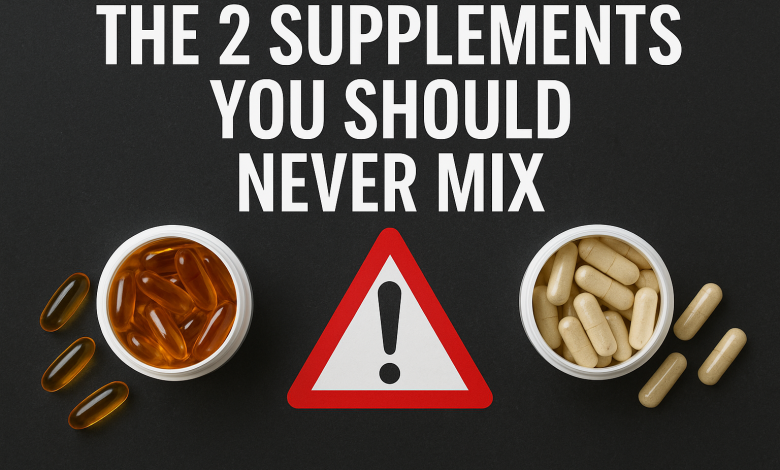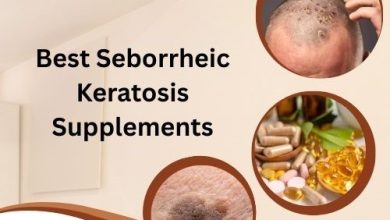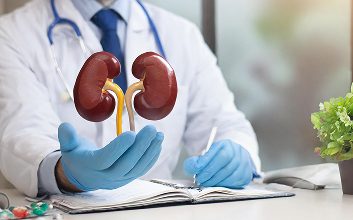The 2 Supplements You Should Never Mix – Doctors Sound the Alarm

A Silent Danger in Your Medicine Cabinet
In today’s health-obsessed world, more and more people are reaching for supplements. From vitamins that promise glowing skin to powders that claim to boost energy, the supplement industry has become a multi-billion-dollar giant. For many, these capsules and tablets feel safer and “more natural” than prescription drugs.
But here’s the chilling truth: not all supplements are safe when combined. In fact, doctors are now sounding the alarm about two specific supplements that should never be taken together. The scary part? Millions of people are already mixing them—unknowingly putting their health at serious risk.
Why Supplements Became So Popular
Before uncovering the dangerous duo, it’s important to understand why supplements are so embedded in our daily lives.
- Convenience: A pill feels easier than changing your diet or lifestyle.
- Hope: Supplements promise control over health when medicine feels too clinical.
- Influence: Celebrities, wellness influencers, and even athletes endorse them.
- Accessibility: Available everywhere—from pharmacies to grocery aisles to Amazon.
But hidden beneath the glossy marketing is a reality that often gets overlooked: supplements are not as strictly regulated as prescription drugs. That means risks, side effects, and dangerous interactions often fly under the radar until doctors start seeing the consequences firsthand.
Calcium + Iron
The first red flag combination doctors warn about is Calcium and Iron.
Individually, both are essential:
- Calcium supports strong bones, heart rhythm, and muscle function.
- Iron is critical for red blood cell production and oxygen transport.
But when taken together? They block each other’s absorption, creating a dangerous imbalance in the body.
- Calcium competes with iron in the digestive system, reducing how much iron your body absorbs.
- Over time, this can lead to iron deficiency anemia, leaving you weak, pale, dizzy, and constantly tired.
- On the other hand, if you keep increasing iron to compensate, you risk iron overload, which damages the liver, heart, and pancreas.
Doctors warn that for pregnant women (who often need both calcium for bone health and iron for increased blood volume), this mix can be especially harmful for both mother and child.
The Second Toxic Pair: St. John’s Wort + Antidepressants
The second combination is even more alarming: St. John’s Wort (a popular herbal supplement for mood) and prescription antidepressants.
- St. John’s Wort has been marketed as a “natural” mood booster.
- Antidepressants such as SSRIs (Prozac, Zoloft, Lexapro) already work to regulate brain chemicals like serotonin.
When combined, the body can spiral into a condition called serotonin syndrome, a life-threatening state where serotonin builds up to toxic levels.
Symptoms include:
- High fever
- Agitation and confusion
- Sweating and rapid heart rate
- Muscle rigidity or tremors
- In severe cases: seizures, organ failure, and even death
What’s chilling is that many patients don’t realize they’re mixing the two. They might take St. John’s Wort because it’s “natural” while already being prescribed antidepressants by their doctor, without ever mentioning it.
Real-Life Stories: The Human Cost of Mixing Supplements
Behind every warning are real people.
- Maria, 32, started taking iron for fatigue while also taking a calcium supplement for bone health. Months later, she was diagnosed with severe anemia. Her doctor traced it back to the two supplements canceling each other out.
- James, 45, struggled with depression. While on an SSRI, he added St. John’s Wort after reading about it online. Within days, he was hospitalized with serotonin syndrome—barely surviving the night.
These are not isolated cases. Emergency rooms are increasingly reporting supplement-drug interactions. And most of these tragedies share one heartbreaking theme: people thought they were helping their health, not harming it.
Why This Warning Hits Home Emotionally
This issue is more than science—it’s about trust, fear, and responsibility.
- Parents worry if they’ve unknowingly harmed their children by giving them the wrong vitamins.
- Patients wonder if their “natural” supplements could be quietly working against their prescribed medications.
- Families fear the idea of losing someone, not to disease, but to a supplement meant to protect them.
It’s emotional because supplements live in the most intimate spaces of our lives—our kitchen cabinets, bedside tables, and morning routines.
How Interactions Work in the Body
Doctors emphasize that the body is not a machine where you can keep adding “good things” without consequence.
- Nutrients and compounds compete for absorption in the gut.
- Some supplements amplify the effects of drugs, pushing the body into overdose.
- Others cancel out the benefits, leaving patients vulnerable to conditions they thought they were preventing.
The two dangerous pairs—Calcium + Iron and St. John’s Wort + Antidepressants—are the most high-risk examples, but they’re not the only ones. Doctors also warn about interactions like:
- Vitamin K + Blood Thinners (dangerous clotting risks)
- Magnesium + Certain Antibiotics (reduced effectiveness)
- Ginkgo Biloba + Aspirin (increased bleeding risk)
But among them all, the first two have triggered the loudest alarm bells in the medical community.
Why Doctors Are Speaking Out Now
So why is this warning making headlines today? Because the problem is growing faster than ever.
- Supplement use in the U.S. has doubled in the past decade.
- Patients often don’t tell doctors about supplements, thinking they’re harmless.
- Social media influencers promote herbal remedies without medical oversight.
Doctors now feel an urgent responsibility to warn before it’s too late.
The Emotional Fallout: Guilt and Regret
One of the hardest truths about supplement mistakes is the emotional fallout that follows.
- A mother giving her teenage daughter iron and calcium, only to find out she’s unintentionally harmed her.
- A young man fighting depression who thought a natural herb would speed his healing, only to end up hospitalized.
- Families who lose loved ones because no one ever told them about these risks.
It’s not just about health—it’s about guilt, regret, and the haunting feeling of “If only I had known.”
How to Protect Yourself and Loved Ones
Doctors say prevention starts with three golden rules:
- Always Tell Your Doctor About Supplements – Even if it’s “just vitamins.”
- Don’t Mix Without Research – Especially when prescription drugs are involved.
- Stick to Trusted Sources – Avoid supplements promoted by influencers or unverified sellers online.
Practical steps include:
- Take calcium and iron at different times of day (never together).
- Avoid St. John’s Wort completely if you’re on any mental health medication.
- Reading supplement labels as carefully as prescription bottles.
Natural Doesn’t Always Mean Safe
The emotional power of this story lies in one myth that must be shattered: natural doesn’t mean harmless.
- Hemlock is natural.
- Arsenic is natural.
- Tobacco is natural.
And yet all can kill. St. John’s Wort may grow in fields, and calcium may come from food, but when taken incorrectly, they can be just as dangerous as any lab-made chemical.
Conclusion: A Wake-Up Call for All of Us
The story of the two supplements you should never mix isn’t just about pills—it’s about awareness, trust, and the fragility of health.
Doctors aren’t trying to scare people away from supplements. They’re trying to save lives. They know that what you don’t know can hurt you—and sometimes, even kill you.
So the next time you reach for that bottle, ask yourself:
- Do I really understand what’s inside?
- Am I sure it won’t interact with something else I’m taking?
- Have I told my doctor the full story of what I use?
Because the truth is simple but powerful: your health depends not just on what you take—but on what you mix.
Final Thought
Supplements can help. They can heal. They can improve lives. But without knowledge, they can also destroy.
The doctors’ alarm is more than medical advice—it’s a plea for awareness, responsibility, and care. Because at the end of the day, the most important supplement you’ll ever take isn’t in a bottle. It’s the knowledge to protect yourself and the ones you love.




